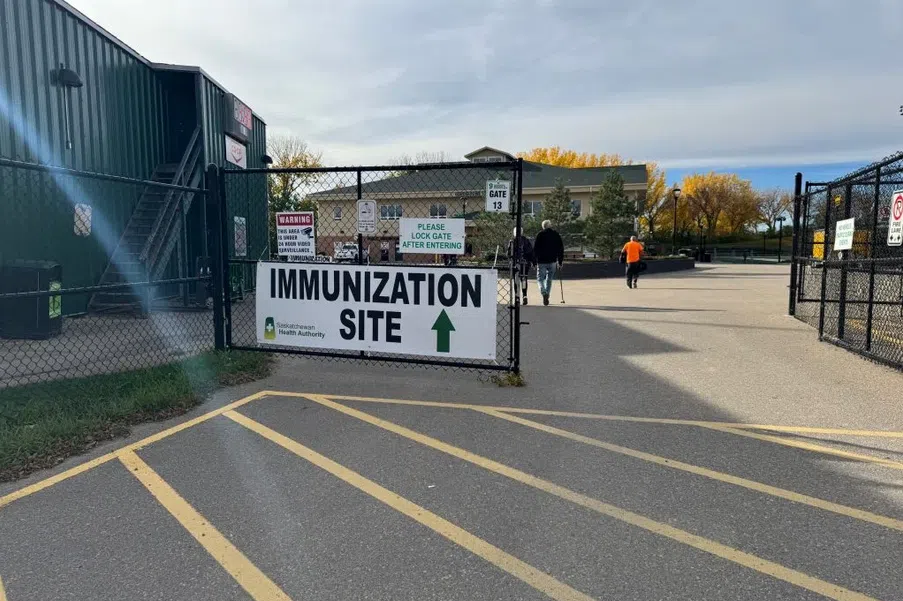Fall might have just started, but there’s another season coming soon – cold and flu.
Medical Health Officer with the Saskatchewan Health Authority, Dr. Simon Kapaj, said low levels of seasonal viruses are currently circulating. That includes the flu, COVID-19, RSV and the common cold.
Read more:
- Doctor says influenza, walking pneumonia cases rising in Sask.
- Measles immunization changes for babies in high-risk exposure areas
- What you need to know about Saskatchewan’s first urgent care centre
The virus found most often right now is rhinovirus, according to Kapaj, with symptoms that include a sore throat, body aches and fever. But soon these levels will change.
“As the weather gets colder, these viruses are more active, and the opportunity for transmission from person to person is increased during the indoor activities,” he said, specifically referencing how COVID-19 and flu cases will start to grow.
Kapaj’s main message is that people need to get vaccinated.
“Get the shots that are required, especially the flu shots, COVID shots, as well as other shots that are appropriate for the age,” he said.
According to Kapaj, the earlier you get vaccinated, the better. That’s especially true for children and those with underlying medical conditions or compromised immune systems. He said without vaccines, these groups are at higher risk of severe complications and potentially hospitalization.
But the responsibility of getting jabbed extends beyond the most vulnerable, with Kapaj saying that more vaccinated people means a safer community.
“It’s not only about individual protection, but also our families and the community at large,” he said.
Bookings for Saskatchewan’s 2025 fall immunization program will open up in early October, with vaccine clinics scheduled to start mid-October, according to a written statement from the SHA.
Last year ,the clinics opened up on Oct. 15.
Kapaj said getting shots next month will provide immunity for both the fall and winter seasons.
Rising number of infections
Kapaj also mentioned the rise of cryptosporidiosis. It’s an infection caused by a parasite found in the intestines of humans and animals.
He said people can get it by drinking water or eating food contaminated by the parasite, or coming in contact with feces. The symptoms include cramps, an upset stomach, fever, watery diarrhea and even weight loss if it lasts.
These symptoms aren’t unique to the infection, though, so Kapaj said healthcare providers would need to do testing on a person to confirm if they have cryptosporidiosis. Most people will present mild symptoms, though, so the concern for Kapaj centers around children, seniors and those with compromised immune systems getting it.











